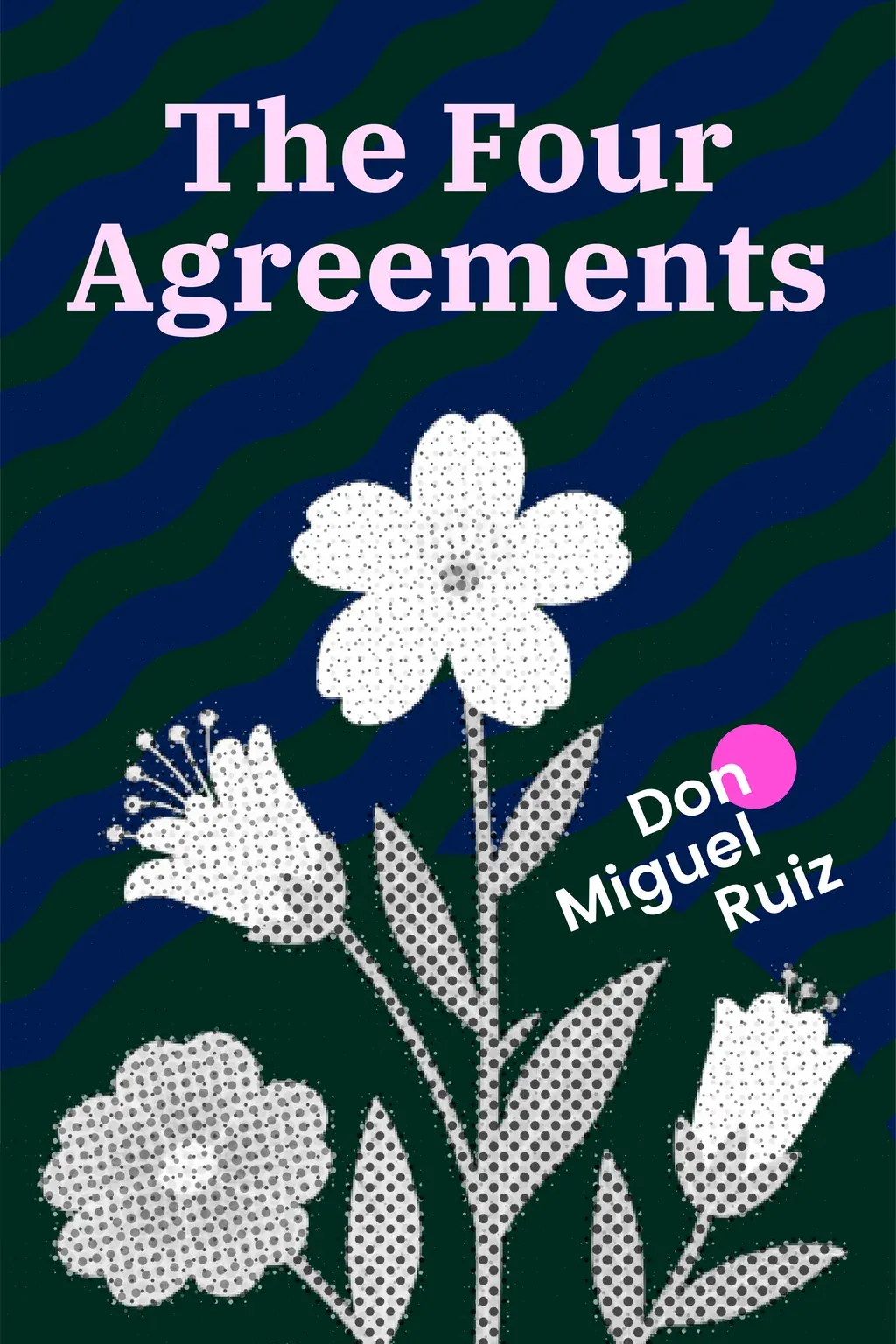

The Four Agreements
Personal Development
Don Miguel Ruiz
Episodes
Summary
In "The Four Agreements: A Path to Personal Freedom," Don Miguel Ruiz presents a profound synthesis of ancient Toltec wisdom and contemporary self-help philosophy, offering a roadmap toward authentic living and emotional liberation. The text elucidates four pivotal agreements designed to transcend the barriers wrought by societal conditioning and self-imposed limitations: to be impeccable with one's word, to refrain from taking anything personally, to avoid making assumptions, and to always do one’s best. Through their practice, Ruiz asserts, individuals can cultivate a more conscious existence characterized by resilience, clarity, and deep personal empowerment.
The notion of "domestication," as articulated by Ruiz, serves as a crucial backdrop for understanding the psychological confines that inhibit genuine self-expression. From early childhood, individuals navigate a labyrinth of cultural norms and familial expectations, which form a collective narrative—the "dream of the planet." This dream, filled with unexamined beliefs, creates a formidable barrier that obscures our inherent potential for happiness and self-acceptance. To reclaim one's authentic self, one must first acknowledge the invisible constraints of societal conditioning, thereby embarking on a transformative journey of self-awareness and introspection.
Each of the four agreements serves as a key that unlocks facets of personal freedom, beginning with the imperative to be impeccable with one's word. This principle emphasizes the profound impact language holds—not only in communication with others but also in the internal dialogue that shapes self-identity. Words wield the power to manifest positivity or create emotional chaos; consequently, engaging in conscious and respectful communication becomes a veritable act of love.
The second agreement—"Don't Take Anything Personally"—encourages one to detach from the opinions and judgments of others, viewing them as reflective of the speaker's beliefs rather than intrinsic to one's self-worth. By cultivating this perspective, individuals liberate themselves from the damaging effects of external validation, fostering resilience in the face of criticism or praise alike. This emotional detachment facilitates a deeper empathic engagement with others, allowing for authentic connections devoid of unnecessary conflict.
"Don't Make Assumptions," the third agreement, calls for a shift toward clarity through open dialogue and inquiry. The tendency to assume can breed misunderstanding, fostering a cycle of miscommunication and emotional turmoil. By embracing the courage to ask questions and clarify intentions, individuals dismantle the potential for discord, nurturing relationships characterized by mutual respect and understanding.
Finally, the fourth agreement—"Always Do Your Best"—invites one to consider the fluidity of effort and the importance of self-compassion. Recognizing that the capacity to "do one's best" varies with each circumstance liberates individuals from the shackles of perfectionism. By approaching life with a mindset that prioritizes sincere effort over rigid expectations, one cultivates an environment conducive to personal growth and emotional well-being.
Throughout this discourse, Ruiz articulates the importance of breaking free from old, fear-based agreements that have long governed one’s beliefs. Essential to this journey is the recognition of the internal critic—the Judge—and the tendency to adopt a Victim mentality, both of which trap individuals in cycles of self-doubt and negativity. By engaging in mindfulness and self-reflection, one can begin to deconstruct these harmful narratives, paving the way for transformation and the embrace of a more authentic existence.
The culmination of Ruiz's teachings resonates in the notion of creating a "personal heaven," an inner sanctum where love and joy flourish. By weaving together awareness, intention, and the four agreements, individuals can construct a reality that reflects their true essence—where fear diminishes in the light of love, and emotional freedom flourishes. Ultimately, the invitation to engage with the principles of "The Four Agreements" is not merely a call for personal transformation; it serves as an empowering directive to contribute to a more compassionate collective human experience. Through love and intentionality, each reader is urged to step boldly into the realm of possibility, fostering a better world, both within and beyond themselves.
Popular Quotes
- Domestication is so strong that at a certain point in our lives we no longer need anyone to domesticate us. We don’t need Mom or Dad, the school or the church to domesticate us. We are so well trained that we are our own domesticator.
- The outside dream may hook our attention, but if we don’t agree, we don’t store that information. As soon as we agree, we believe it, and this is called faith.
- We don’t see the truth because we are blind. What blinds us are all those false beliefs we have in our mind.
- Just being ourselves is the biggest fear of humans.
Edition Info
Paperback
Published by Amber-Allen Publishing
1997-11-07 | 160 Pages | 5.5 x 0.4 x 8.5 inches | ISBN 978-1878424310










